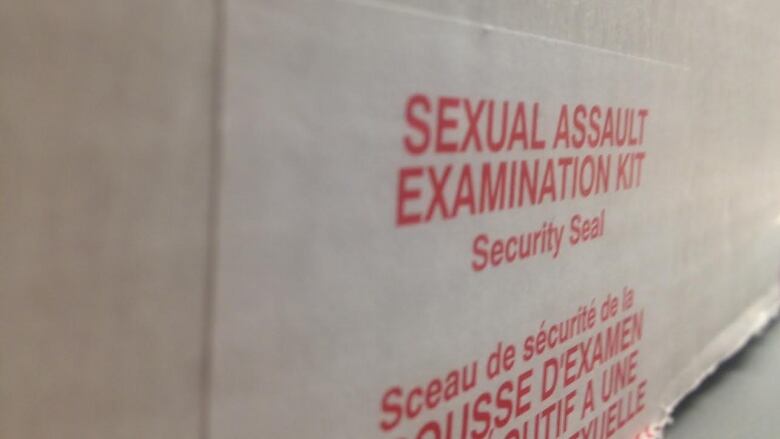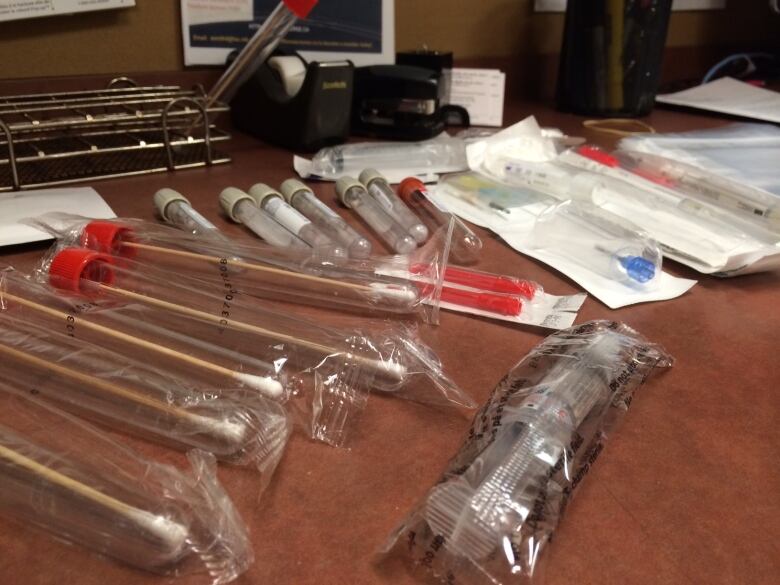P.E.I. introduces 'third option' for reporting sexual assault
The new option allows survivors to have forensic kits collected without immediately reporting

Survivors of sexual violence who go to a P.E.I. hospital emergency room can now decide to have evidence collected without immediately making a report to police.
The "third option" was announced in the legislature Wednesday, two years after the government committed to introducing the new reporting mechanism.
"It's been a long time coming, but we're happy it's here, and it's about supporting the victims and trauma-based betterment," said Justice Minister Bloyce Thompson.
"It's sensitive material that we're storing and protecting, so you have to make sure you do it right, and we had a lot of training to do and policies to do, and we had to make sure they were all aligned before we introduced it."
Thompson said the new option has been available for about a week.
Giving victims more time
Prior to the implementation announced Wednesday, victims were only given two options when they presented at hospital in the aftermath of a sexual assault: collect forensic evidenceknown as a rape kitand report to police ordon't.
The third option allows survivors to have the kit collected without immediately filing a complaint with police. RCMP will nowstore the anonymousevidence for a full year while survivors decide if they would like to work through thecriminal justice process.
"It gives the victim more time to process everything that's happened to them. And when they're ready, they can come forward," Thompson said.
"It's all about supporting the victims, so we have to remember, this is very traumatic for them. And sometimes you just need that extra time tolet them heal and process it."
There's no perfect victim, making perfect decisions, at the perfect moment for all of the systems. Jane Ledwell,P.E.I. Advisory Council on the Status of Women
The P.E.I. Advisory Council on the Status of Women has been advocating for the third option and said it celebrates the move.
"It's really positive that all of those factors came together to make this service available to women or victims of sexual violence," said executive director Jane Ledwell.
"Everything that we know about how the brain works after trauma, how victims respond, what time they need for making those decisions, tells us that that third option is absolutely necessary."
No 'perfect' victims
Although Thompson and Ledwell couldn'tanticipate how many victims will take advantage of the new delayed reporting option, Ledwell said it's crucial that it exists and Islanders know about it.
"There are services available to take care of their health first, to be able to get what they need at hospitals in P.E.I., and that they will be given the options that they need to follow up if they want to seek a legal remedy or address it through the justice system in the future," she said.
"All of that has to be in place, whether it's one person or 200 people in the course of the year."

The minister said government anticipated having the program in place sooner, but since it is a collaboration between police, Health PEI and several government departments, COVID-19 caused some delays.
"Our nurses have been under a great deal of workload and training for this just wasn't top priority at the time," he said. "We didn't want to push the nurses too hard, but, you know, we continuously wanted this to come forward."
Officials with the Department of Justice and Public Safety said staff, including nurses, have been trained to follow a particular protocol when a victim presents in the hospital, designed to support victims clinically and emotionally.
Staff will not have the individual wait in the waiting room, instead bringing them immediately into a room where they will offer to collectevidence. The survivor then consents to the option they'd like to proceed with.
"The services that people require when they face sexualized violence, and sexual assault in particular, have to respond to victims where they are, they have to be fully trauma-informed and understand how the brain works when one has experienced trauma," said Ledwell, adding that decisions made may not be logical to an onlookerwho has not experiencedtrauma.
"The timelines might not look like we expect ... there's no perfect victim, making perfect decisions, at the perfect moment for all of the systems. If we have the victim at the centre with control of the choices that she or he can make, that's really the most important thing."
The third reporting option is now available in all four of P.E.I.'s hospital emergency rooms.












_(720p).jpg)


 OFFICIAL HD MUSIC VIDEO.jpg)
.jpg)



























































































